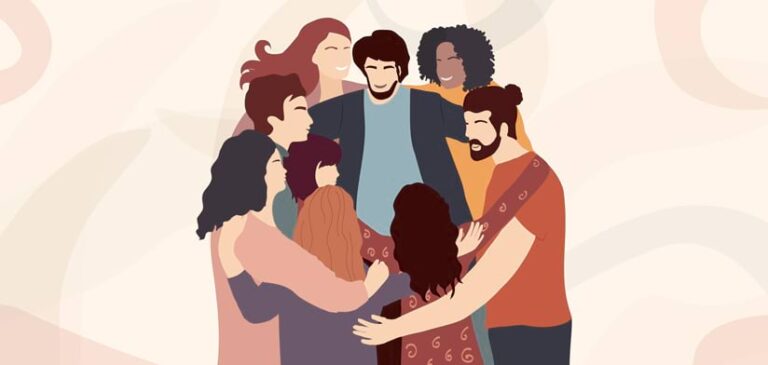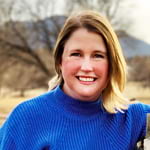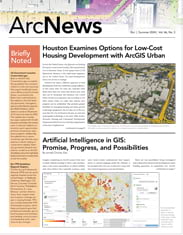Centers of learning and research are dynamic, inventive, and complex places. They are also too often places of exclusion, isolation, and stress. This is caused by hyperindividualism; competition; pressure to “publish or perish;” and institutionalized power dynamics that create disproportionate barriers for people who identify as women, BIPOC (Black, Indigenous, or other people of color), LGBT2QIA+, and disabled—and many whose identities cross these and other categories, compounding the impacts. This is true at the campus level and across the research landscape, especially at underresourced minority-serving and emerging research institutions.
Those of us who are academic researchers, students, or faculty know that a life of teaching, mentoring, and research can be intrinsically rewarding and highly impactful. Alone and together, we navigate the systems that create barriers to our ability to thrive.

So how can we ensure that these systems not only reward research and ideas but also support and regard all people as they are? How can we be part of a research enterprise that not only brings together people who represent many backgrounds but also fosters and sustains equity among us, recognizing all perspectives and supporting people’s full lives?
Addressing the Long-Standing Inequities of Research
Three years ago, as a professor of geography at the University of Colorado Colorado Springs (UCCS), I was collaborating on research projects, teaching classes, and chairing my department. The world was in the thick of a pandemic and undergoing massive social change, and I was simultaneously managing pressing family needs and several stunning personal losses.
The dissonance grew between the demands that I and others were facing at work and the profound personal and societal experiences we were having. This is when I knew that something was not right about what was happening in academia.
I felt compelled to sit down and write out what became a sort of manifesto for a care ethos in research. The Ethos of Care hinges on feminist ideas—especially those from Black feminists—as well as antiracist, queer, and anti-ableist work, to imagine more ethical ways of being in the academy.
I shared my thoughts with inspirational colleagues and then coauthored an article with them on this idea for Inside Higher Ed. We devised a 10-point pledge to support care, authenticity, and collectivism in research. It has resonated widely and led to the creation of a gathering called Convening of Care, planned for September 2024. About 30 researchers and academics will come together to examine the pledge and begin to find ways to enact it as individuals and at the systemic level.
Funded by the National Science Foundation and jointly sponsored by the American Association of Geographers (AAG), the National Organization of Research Development Professionals (NORDP), and UCCS, the convening will call on participants to pause and think about other ways of being and doing in their work. Participants will also examine what care looks like when engaging in knowledge production, as well as how to build more supportive academic and research environments. This may include formulating less-hierarchical approaches to mentoring, making laboratory culture more inclusive, and encouraging a move away from grind culture—as described in Rest Is Resistance: A Manifesto by Tricia Hersey—to contest deeply ingrained systems of power.
Participants will also focus on systemic reform efforts, such as how to change policies and structures in ways that transform research landscapes. The goal is to identify and catalyze scalable practices in many institutional and organizational contexts.
Change at Multiple Levels
The kind of change that my colleagues and I envision is individual, institutional, and systematic because change is intertwined at all these scales. Reorienting academia toward justice and compassion requires recognizing that academic systems are made up of systems and structures as well as hearts and minds.
The Ethos of Care pledge is an opportunity for individuals and institutions to think about new norms and strategies for how they do their work. This pledge is a living document—a starting point from which to consider ways to collaborate and something to check back in on over time. It can also serve as a prompt for navigating difficult conversations around the inherent imbalances of power at institutions—conversations that get approached with care, acknowledging the vulnerability of various collaborators and the potential consequences for everyone involved.
Taking these principles to heart means disrupting what researchers and academics think is inevitable about their work and their institutions. In her provocative book The Promise of Happiness, Dr. Sara Ahmed asserts that those who work in academia can challenge the accepted definitions of academic happiness. Ranking, productivity, and influence can be supplanted by a more caring vision of equity, justice, and reparation to cocreate transformative, radical futures.
Given the outsize underrepresentation of women and minority-identified scholars, this willingness to unsettle destructive expectations is more important than ever.
Committing to Care in Geography and Beyond
This collaboration between AAG, NORDP, and UCCS elevates the expectation that institutes commit to an ethos of care—in geography and beyond.
Our aim is to redefine what it means to partner on research, not just in terms of work productivity but also in feeling supported and held by one another. As we endeavor to create diverse, inclusive, and innovative knowledge centers that respond to the world’s most urgent challenges, we also need to learn to care for one another, and care well.
To express thoughts, ideas, and questions about the Ethos of Care pledge, email Dr. Emily Skop at eskop@uccs.edu.


